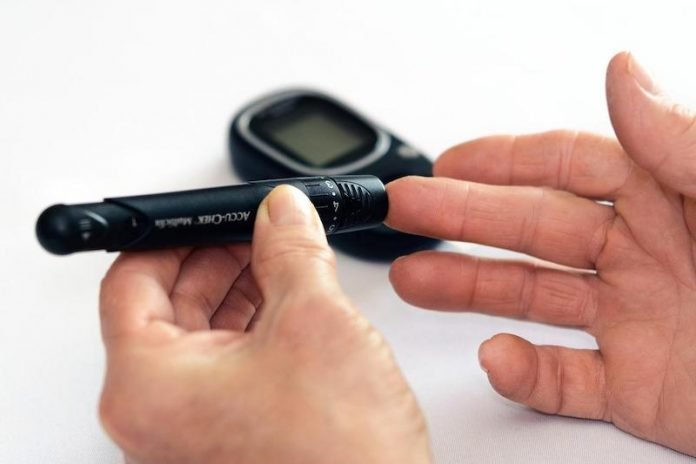
Scientists from the University of Michigan found that many older people with diabetes may be dangerously overtreated.
They suggest that effective treatment requires a personalized approach based on individual risk and benefit.
The research is published in the Journal of General Internal Medicine and was conducted by Jeremy Sussman et al.
The long-term effects of elevated blood sugar can harm everything from the heart and kidneys to the eyes and feet.
But taking diabetes meds may increase the risk of falls and other problems that accompany low blood sugar.
In the study, the team examined detailed records from 78,792 Medicare participants with diabetes who were 65 and older and lived in 10 states.
Almost 11 percent had very low ongoing blood sugar levels recorded during the study period, suggesting overtreatment.
But only 14 percent of that subgroup had a reduction in blood sugar medication refills in the six months after that reading.
The team found patients 75 and older, as well as those who qualified for both Medicare and Medicaid because of low income or serious disability, were most likely to be overtreated.
Patients over 75 were less likely than others to have their treatment dialed back, as measured by prescription doses and refills.
But patients who had more than six chronic conditions, or lived in urban areas or had frequent outpatient visits, were more likely to have their medication dialed back.
The researchers warn against a one-size-fits-all approach to treating diabetes in older patients.
Instead, they advise greater personalized care that accounts for the risks and benefits that such treatment holds for each patient.
The team says that older patients with diabetes — and the adult children who often assist with their care —should talk to their care teams about whether de-intensification is right for them.
It can be hard for an older person to recognize the signs of too-low blood sugar, such as confusion and combativeness, or of too-low blood pressure, such as dizziness.
Elderly patients can also struggle to keep up with multiple medications and frequent blood sugar checks. De-intensifying their treatment can often provide relief.
If you care about diabetes, please read studies about common vegetables that may reduce kidney damage caused by diabetes, and why more than half of people with type 2 diabetes die from heart disease.
For more information about heart health, please see recent studies about a new early warning sign for heart disease, and results showing common high blood pressure drugs may increase risk of this heart disease.
Copyright © 2022 Knowridge Science Report. All rights reserved.



